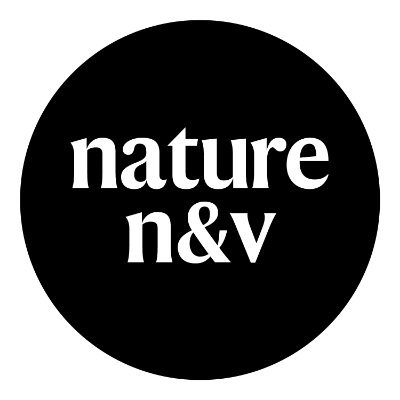
Goriely Lab
@GorielyLab
Followers
354
Following
386
Media
34
Statuses
271
We study the relationship that exists between the occurrence of new mutations and the regulation of cell fate choices in the male germline @MRC_WIMM
Oxford, United Kingdom
Joined August 2020
Our lab, together with others, have secured funding for a project titled “Making it personal”, which uses theatre to explore public perception of a new form of genetic testing. Read more below.... https://t.co/qO397AN68v
imm.ox.ac.uk
Alison Kay and Anne Goriely, together with Minna Jeffery (St. Anne’s College) and Lisa Hinton (Nuffield Dept. of Primary Care Health Sciences), have won an award from the University of Oxford’s PCER...
1
1
6
Introducing our latest paper ( https://t.co/EuVGLoCmuM) : "can the male germline offer insight into mammalian brain expansion?" Its contents in brief: we think so.
onlinelibrary.wiley.com
Recent advances in single-cell transcriptomic data have greatly expanded our understanding of both spermatogenesis and the molecular mechanisms of male infertility. However, this growing wealth of...
0
1
8
The genes that influence menopause timing are also linked to cancer risk and newly arising mutations in egg cells. Balancing the benefits of future treatments to extend fertility with the potential risks will be important, says @GorielyLab.
nature.com
Nature - Genes linked to ovarian ageing pinpointed.
1
19
47
🚨 Job alert Hiring a postdoc (comp or wet lab) to work on chromatin & genetics 🧬 Come work with us @HumanGeneticsOx in the beautiful @UniofOxford 🗓️ Closing September 13th Details at https://t.co/TRLXH3hKfS Pls share and RT! #PostdocJobs #GeneticsJobs #genomics #cohesin
0
21
22
After a few years of work, we have identified the first non RAS/MAPK pathway gene which is under 'selfish selection' in the male germline. With implications for those with @MyhreSyndrome, our seminal work is published in @AJHGNews
Hot off the press! Our latest publication “SMAD4 mutations causing Myhre syndrome are under positive selection in the male germline”, is out today in @AJHGnews! https://t.co/ooURFjoUJ5 – the result of a fruitful collaboration with the Tartaglia lab in Rome
1
2
9
With thanks to the patients, clinicians, collaborators and authors for all their support on this collaborative project!
0
0
1
SMAD4 is the first PAE gene operating outside the RAS-MAPK pathway @RASopathiesnet. This finding raises the exciting possibility that other genes and signalling pathways may be under positive selection in the male germline.
1
0
2
This unusual behaviour is explained by a process called ‘selfish selection’ where pathogenic mutations form clonal growths that are positively selected in testes of men over time, explaining the relative enrichment and increased birth prevalence of the disorder in older fathers.
1
0
0
Our findings show that Myhre syndrome DNMs exhibit the unusual features shared by all other “paternal age effect” (PAE) mutations, including exclusive paternal origin, elevated paternal age, and enrichment of pathogenic DNMs in the sperm of most men.
1
0
0
Using a combination of epidemiological data, ultra-deep @illumina sequencing and in vitro functional assays, we show that Myhre mutations are positively selected in ageing human testes.
1
0
0
In this paper, we studied the origin of de novo mutations (DNMs) in the gene SMAD4, causing @MyhreSyndrome, directly at their source, in the human male germline.
1
0
0
Hot off the press! Our latest publication “SMAD4 mutations causing Myhre syndrome are under positive selection in the male germline”, is out today in @AJHGnews! https://t.co/ooURFjoUJ5 – the result of a fruitful collaboration with the Tartaglia lab in Rome
1
13
25
We wish @educalpena all the best on his PI endeavours in Valencia. His wealth of knowledge and infectious personality will be missed!
It's a momentous week: after 8 years in the Wilkie Lab, our former postdoc/visiting researcher @educalpena is leaving Oxford to become a Principal Investigator at @IISLaFe in Valencia 🧬🇪🇸 Congratulations to Edu, and farewell - we wish you the best of luck with your next steps!
1
1
9
We are grateful to all our participants and to our funders @OxfordBRC @Wellcometrust for making this research possible. Thank you also to our reviewers and editors at The Journal of Genetic Counseling for giving us the opportunity to share our findings. 10/10
0
0
1
A further finding is that giving personalised risk information with a non-directive approach may create patient burden. Securing understanding for autonomous decision-making may be hard to achieve and couples may want more guidance. Research with couples is planned. 9/10
1
0
1
Practitioners felt a responsibility not to increase guilt/blame & said fathers may be unprepared to discover paternal origin for their child’s serious condition. Given the majority of DNMs originate from fathers (1-off event), genetic counselling would need to address this. 8/10
1
0
0
Practitioners appreciated a pre-conception tool to provide reassurance & identify higher risk couples for targeted support. Maternal origin was challenging to counsel because unlike paternal origin, risk cannot be precisely quantified due to lack of access to oocytes. 7/10
1
0
0
20 semi-structured interviews with clinical geneticists & genetic counsellors from 15 UK NHS Trusts were analysed using qualitive methods to look at the experience of genetic counselling with personalised DNM recurrence risk information. 6/10
1
0
0
The new PREGCARE strategy from @UniofOxford can give couples a personalised recurrence risk based on their specific circumstances. This latest paper considers experiences with personalising genetic risk information and what this means for providing genetic counselling. 5/10
1
0
0
It is rare but a DNM may not in fact be new in a child. It may have first occurred in a parent when they themself were a developing embryo. If this happened, it could be in some of the father’s sperm cells or some of the mother’s egg cells. It could be passed on again. 4/10
1
0
0







